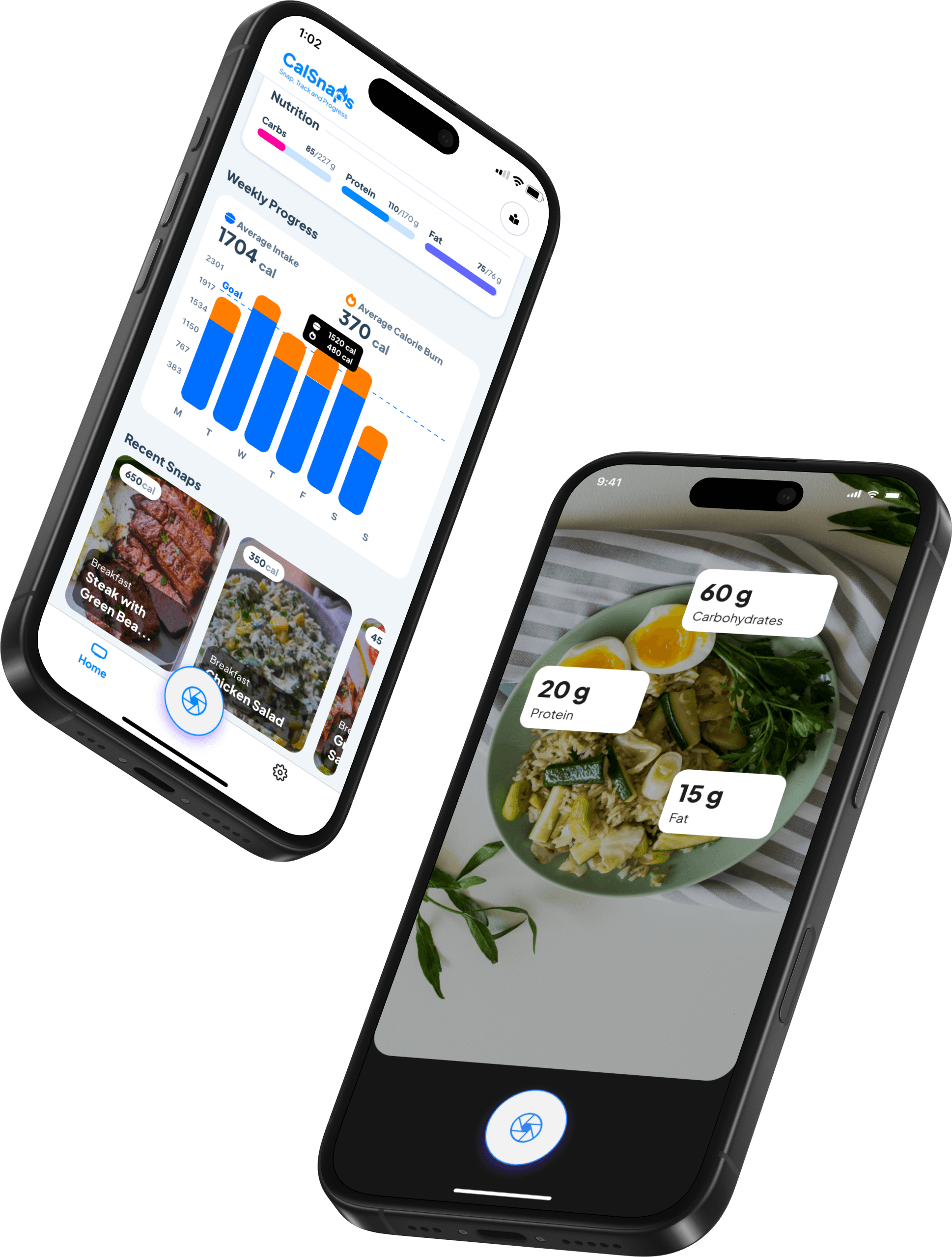Why Weight Loss Feels Impossible Without Food Tracking and How AI Simplifies It
Jan 15, 2025
Losing weight can often feel like an uphill battle, with countless diets, workout plans, and “quick fixes” promising results. Yet, for many people, the weight stubbornly refuses to budge. The truth is, a critical factor often overlooked in weight loss is understanding what, and how much, we eat. Food tracking, particularly tracking calories and protein, plays a pivotal role in weight management—and now, thanks to AI, it’s never been easier.
The Problem With “Blind” Weight Loss
It’s common to hear advice like “eat less and move more.” While this is technically true, the simplicity of the statement masks a more complex reality. Without a clear understanding of your food intake, you’re essentially guessing—sometimes drastically underestimating or overestimating what you consume.
Why This Matters:
Calories In vs. Calories Out: Weight loss boils down to creating a calorie deficit. If you don’t know how many calories you’re consuming, it’s hard to ensure you’re staying within the right range.
Protein Preservation: When the body is in a calorie deficit, it seeks energy wherever it can find it. Without adequate protein intake, your body may break down muscle for energy instead of burning fat. This leads to muscle loss and can slow down your metabolism, making long-term weight loss even harder.
A study published in Obesity found that individuals who tracked their food intake were significantly more successful in losing weight than those who didn’t. Knowledge truly is power when it comes to making informed dietary choices.
Why Tracking Protein Is as Important as Calories
When people think of weight loss, calories often take center stage. But protein is just as crucial for achieving sustainable results.
Preserves Muscle Mass: Protein supports muscle repair and growth. During weight loss, eating enough protein ensures your body retains lean muscle tissue.
Increases Satiety: High-protein meals help you feel fuller for longer, reducing the likelihood of overeating.
Boosts Metabolism: Protein requires more energy to digest than fats or carbs, meaning you burn more calories simply by eating it.
The challenge? Tracking protein and calories consistently can feel overwhelming, especially with a busy schedule. That’s where AI-powered tools come in.
How AI Makes Food Tracking Easy and Effective
AI technology has revolutionized many aspects of our lives, and food tracking is no exception. Gone are the days of manually logging meals or guessing portion sizes. Modern AI-based tools streamline the process, making tracking effortless and more accurate.
Here’s how AI can help:
Quick and Accurate Meal Logging: AI-powered apps can recognize food items from a simple photo, automatically estimating calorie and macronutrient content.
Custom Recommendations: Based on your goals, activity level, and dietary preferences, AI can suggest personalized targets for calories and protein.
Real-Time Feedback: AI can analyze your daily intake and provide actionable feedback, such as adjusting portion sizes or increasing protein intake.
Motivation and Insights: With progress tracking and reminders, AI keeps you accountable and motivated, turning healthy habits into a sustainable lifestyle.
According to a study published in the Journal of Medical Internet Research, users of AI-driven food tracking tools were more consistent in logging their meals and achieved better weight management outcomes compared to those using traditional methods.
Why You Should Start Tracking Today
The good news? Tracking doesn’t have to be complicated or time-consuming. With AI-based apps, you can gain insight into your eating habits, make smarter choices, and take control of your weight loss journey—all with just a few taps on your phone.
The Benefits:
Awareness: Understand exactly what’s going into your body and make more informed decisions.
Efficiency: Save time and eliminate guesswork with automated tracking features.
Sustainability: Build habits that last, leading to long-term health and wellness.
Editorial Resources and Fact-Checking
Obesity: Study on the effectiveness of food tracking in weight loss.
Journal of Medical Internet Research: Research on AI tools and their role in diet tracking.
National Institutes of Health (NIH): Guidelines on calorie and protein intake for weight management.
Check out our other blog posts
Why Weight Loss Feels Impossible Without Food Tracking and How AI Simplifies It
Jan 15, 2025
Why Healthy Foods Might Be Messing Up Your Goals and How To Fix It
Jan 13, 2025
Stretching Secrets That Prove Flexibility Is Key to Long-Term Fitness
Dec 9, 2024
Meal Prep Tips for Busy People Who Want to Stay Healthy
Jan 6, 2025
From Couch to Confident with a Realistic Plan to Start Exercising
Nov 29, 2024






